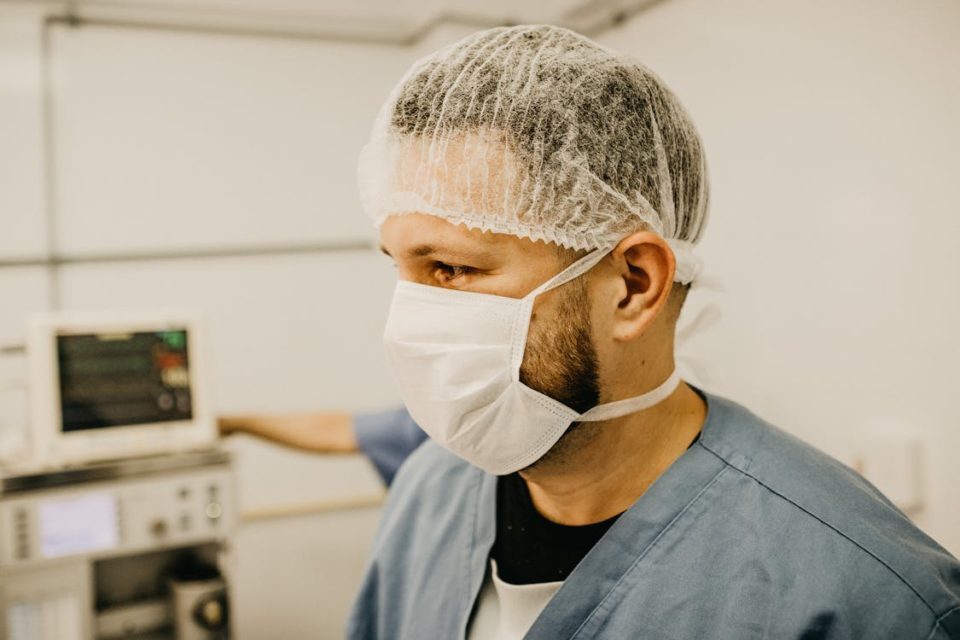
Organ transplantation in Bosnia and Herzegovina (BiH) faces numerous challenges.
The result is long waiting lists for patients, a significantly lower number of completed transplants compared to other European countries, and the absence of organized transplant programs. Additionally, there is a general lack of awareness about the importance of organ donation, despite it being an act that can save lives.
The stories of those in need of transplants reveal the cruel material consequences of such an inadequate system. Those medical professionals willing to openly discuss the scale of the problem corroborate that Bosnia’s transplantation system is simply not working for its patients. Despite this hostile environment, there is a growing resilience and determination among those whose lives are impacted by these systemic failures, to fight for a life worth living.
Dejan and Tomislav
In 2007, Dejan donated a kidney to his uncle. The transplantation was performed in Zagreb, Croatia.
His uncle, Tomislav Žuljević, who received the kidney, had spent over a year on dialysis, which had left him weak and exhausted.
When Dejan told his uncle that he had decided to give him his kidney, Tomislav didn’t know how to react. He recalls that he was overwhelmed by mixed emotions. At first, he wanted to decline the offer because Dejan was young (28 years old at the time), with a wife and child. On the other hand, he thought it might be his only chance to build a new life.
“Together with his wife, I cried and tried to talk Dejan out of his decision. But he was firmly determined to be the donor,” explained Žuljević.
The transplantation was performed at the Merkur Clinical Hospital in Zagreb on March 28, 2007, and today both men live their lives without health issues.
“Dejan is working, and has no issues. After the operation, he had a beautiful baby girl. As for me, thanks to Dejan, I was saved—not only as a patient, but as a person, a son, husband, father, and brother. I’m working, I’m contributing to society, and I’m no longer a burden to either my family or the state as I was when I was on dialysis,” said Žuljević.
Vanja
Vanja Šunjić signed a donor card at the moment when her father passed away, realizing how close death can be to anyone.
“At that moment, I thought it was the most noble act and contribution I could give to someone, in case something happened to me and my organs could save a life. Because of my lifestyle, I’m always on the move, and we witness so many terrible things happening around us. At any moment, we could fall victim to a violent death, a traffic accident, or some other mishap,” said Šunjić.
She adds that every time she meets new people, she makes it a point to inform those around her that she has signed a donor card and that if something were to happen to her, they should act accordingly. She believes her family would be glad that she would continue to live on in some way, through a person in need of an organ that could enable them to live a normal life.
“When I reflect on kindness, faith, and belief, I am deeply convinced that this is the most noble act someone can do, and I appeal to everyone to sign a donor card, because for us it’s nothing, but for someone else, it might be a chance for a new life without suffering,” emphasizes Šunjić.
Dialysis and losing hope
Some of the problems faced by dialysis patients include poor conditions in dialysis centers, dialysis machines of questionable quality , a lack of medical staff, shortages of essential medications, poor care and nutrition for seriously ill patients, and transportation to and from dialysis, often carried out in inadequate vehicles.
Nonetheless, for patients with kidney diseases, dialysis serves as vital support, allowing them to sustain life until a transplant becomes possible. Dialysis is designed to be a temporary measure. However, Žuljević explains that, unfortunately, in BiH, patients most often die without ever receiving a transplant.

When it comes to liver and heart patients, they are in an even more difficult and unfortunate position. “Despite some clinical centers announcing heart transplants, they still aren’t being performed in our country, and the last liver transplant was done over four years ago. These patients are left without hope that they will ever receive the most important call of their life,” said Žuljević.
According to him, the problem of long waiting lists is compounded by the lack of donors, which ultimately means hundreds of patients never even make it onto the waiting list.
“The waiting lists are long, but realistically, they should be even longer. If there are 2,000 patients on dialysis in the Federation of Bosnia and Herzegovina (FBiH), roughly one third could undergo a transplant, which means about 700 patients. However, we have just over 200 patients on the lists waiting for a kidney transplant, around 35 waiting for a liver, 30 for a heart, and so on,” Žuljević emphasizes.
Medical professionals at the Clinical Center of the University of Sarajevo (CCUS) point out that the feasibility of kidney transplants always hinge on the availability of living or brain-dead donors.
“Kidney transplants at CCUS are performed depending on organ donation, primarily involving living related or spousal kidney transplants, after both the donor and recipient have completed preparations at the Nephrology Clinic. Unfortunately, cadaveric transplants are still very rare,” said Prof. Dr. Damir Ribić, head of the Nephrology Clinic at CCUS.
In the past five years, the number of kidney transplants at CCUS has been increasing, and in total, as Ribić stated, 21 successful kidney transplants were performed, while one transplant resulted in acute graft rejection due to venous thrombosis.
The University Clinical Centers in Tuzla and Banja Luka did not respond to our requests for the same data.
Žuljević believes that the biggest issues are the managers of clinical centers who do not prioritize transplant medicine, as well as transplant coordinators, who are responsible for determining brain death (note: brain death occurs when the brain completely stops functioning, but the body is kept alive with the help of ventilators or medications) and speaking with the families of the deceased. “Motivation is needed, and isn’t saving human lives the greatest motivation?” he adds.
He leads his fight for the wellbeing of patients through the Association of Dialysis and Transplanted Patients of the Federation of Bosnia and Herzegovina (FBiH). The Association advocates for better dialysis conditions and an increased number of transplants. Through organized protests, he explained that they have managed to push for amendments to the Law on Organ and Tissue Transplantation for Treatment Purposes, secure changes to certain regulations, and replace some dialysis machines.
The Association also advocates for the introduction of innovative medications for dialysis and transplant patients, provide advisory support to individuals just starting hemodialysis treatments, and continue to push for the procurement and exemption from payment for necessary medications, orthopedic aids, and other medical services in the FBiH. Additionally, they campaign for free treatment of hemodialysis patients outside Bosnia and Herzegovina, specifically to enable kidney transplants for Association members abroad.
Lack of initiatives, lack of awareness
Bosnia and Herzegovina is not a member of Eurotransplant, an international non-governmental organization that for over 50 years has provided services and enabled collaboration between transplant centers, typing laboratories, and donor hospitals in eight countries, including Croatia and Slovenia.
The basic condition for joining Eurotransplant is for the number of organ transplants from cadaveric donors (brain dead donors) to reach at least ten per million inhabitants. Additionally, the country must adopt laws that allow for organ exchange with Eurotransplant partner countries, accepting the principles of cooperation, establishing a unified waiting list, and ensuring logistical conditions for the quick and smooth transport of organs.
“To knock on Eurotransplant’s door, we need to have ten donors per million inhabitants, but last year we had only two donors for three million inhabitants,” stated Žuljević.
According to the Federal Ministry of Health’s transplantation list, around 230 patients are waiting for a kidney transplant. In the entity of the Republika Srpska, patients in need of a transplant are sent to Belarus, as stated by Emeritus Prof. Dr. Halima Rešić, President of the Donor Network of Bosnia and Herzegovina.
Dr. Rešić also emphasizes that families often refuse to donate organs because they are not well-informed.
“The state, particularly the Ministry of Civil Affairs, can support the work of the Donor Network of Bosnia and Herzegovina. It should create high-quality campaigns because without campaigns, there is no donation,” highlighted Rešić.
In early August, brain death was confirmed in a 21-year-old patient at the Cantonal Hospital Zenica (FBiH). After the family of the deceased consented to organ donation, the organs were donated in Zenica. As a result, the first heart transplant in Bosnia and Herzegovina was performed on August 5 at the Clinical Center of the University of Sarajevo (CCUS), under the expert supervision of Prof. Dr. Nermir Granov.
These advances in transplant medicine in Bosnia and Herzegovina, such as the heart transplant, mark a significant breakthrough and represent an important step toward improving treatment options for patients in need of organs. Nonetheless, much progress is needed in BiH before patients can live a life worth living.






